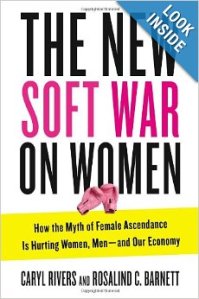By Rhian Lowndes
A new year and a new Congress. With 102 women sitting in the House of Representatives and 25 in the Senate, the United States is seeing unprecedented female power in our national government. Nancy Pelosi calls new members a “transformative Freshman Class” with over a third of House Democrats identifying as people of color and a (marginal but auspicious) growth in religious diversity as well.
With new faces comes change; the House of Representatives has adapted to its new found pluralism by adopting some rules and modifying others to ensure safety and opportunity to all members–maybe I’m giving away my naivety by saying I was surprised that a few of these regulations hadn’t already been established. Still, the following directives are a good sign for the 116th Congress.
- Banning Discrimination on the Basis of Sexual Orientation or Gender Identity. While discrimination by any Member, Delegate, Resident Commissioner, officer, or employee of the House is already disallowed, the House has specifically extended the ban to consider prejudice based on sexual orientation or gender identity, creating a safe space for a new generation of representatives.
- Banning Sexual Relationships Between Members and Committee Staff. Sexual relationships between members and their employees are not tolerated by House rules, but this now includes a prohibition of relationships between members and staffers who are not their direct employees, hopefully eliminating at least some ethical ambiguity surrounding power dynamics in these affairs.
- Service of Indicted Members in Leadership and on Committees. To avoid leaving corrupt people in positions of power, the House has stated that indicted members, and those charged with criminal conduct for a felony offense punishable by at least two years in prison, should abdicate caucus or conference leadership roles and step down from any committee positions.
- Requiring Members to Pay for Discrimination Settlements. Members have to pay the Treasury back for any settlement related a violation of sections 201(a)[1], 206(a)[2], or 207[3] of the Congressional Accountability Act of 1995. This makes members more accountable for their own actions within their government positions.
- Mandatory Anti-Harassment and Anti-Discrimination Policies for House Offices. Each office within the House has to adopt an anti-harassment and anti-discrimination policy by April 1st.
- Office of Diversity and Inclusion. The House has created an Office of Diversity and Inclusion. The Speaker and Minority Leader will select a Director (with recommendations from the Committee on House Administration) and within 150 days the Office must submit a diversity plan for approval. The diversity plan has to include:
- “(1) policies to direct and guide House offices to recruit, hire, train, develop, advance, promote and retain a diverse workforce; (2) the development of a survey to evaluate diversity in House offices; (3) a framework for the House of Representatives diversity report; and (4) a proposal for the composition of an Advisory Council to inform the work of the Office.”
A House of Representatives diversity report at the end of each session of Congress is also required.
- Title II. Select Committee on the Modernization of Congress. The House is creating a Committee to investigate and develop recommendations on the modernization of Congress. By “modernization” they mean they intend to develop a more efficient Congress, taking into consideration scheduling, recruitment, and technology, but it also means the preservation and advancement of diversity.
There’s much more to peruse among the legislation set for consideration in the new year, but it’s good to see that the House is making way for change. Hosting a vastly different staff from previous Congresses means the House is in a position to make an America for women and minorities, as well as groups who have prospered more easily in the past. Hopefully, these regulations will make that task easier, and we’ll see the difference in months and years to come.
https://www.usnews.com/news/politics/slideshows/116th-congress-by-party-race-gender-and-religion?slide=5 https://docs.house.gov/billsthisweek/20181231/BILLS-116hresPIH-hres6.pdf
https://docs.house.gov/billsthisweek/20181231/116-HRes6-SxS-U1.pdf
[1] prohibiting discrimination based on “race, color, religion, sex, or national origin,… age,…[or] disability”
[2] prohibiting the discrimination of veterans and/or denying them employment or benefits if they are eligible employees
[3] prohibiting the intimidation of employees who participate in hearings or proceedings






